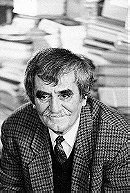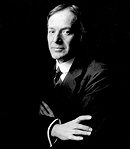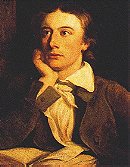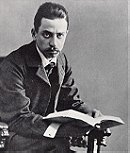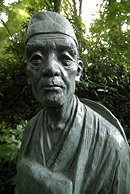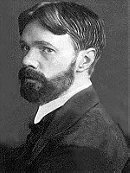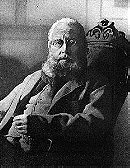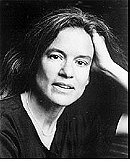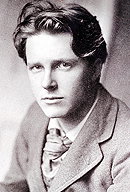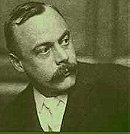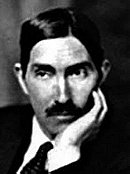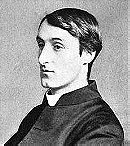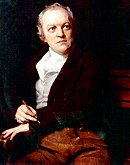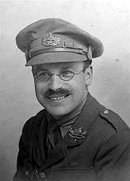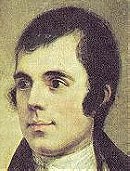Poems about Animals
Sort by:
Showing 19 items
Rating:
List Type:

ROALD DAHL: THE PIG
In England once there lived a big
And wonderfully clever pig.
To everybody it was plain
That Piggy had a massive brain.
He worked out sums inside his head,
There was no book he hadn’t read.
He knew what made an airplane fly,
He knew how engines worked and why.
He knew all this, but in the end
One question drove him round the bend:
He simply couldn’t puzzle out
What LIFE was really all about.
What was the reason for his birth?
Why was he placed upon this earth?
His giant brain went round and round.
Alas, no answer could be found.
Till suddenly one wondrous night.
All in a flash he saw the light.
He jumped up like a ballet dancer
And yelled, “By gum, I’ve got the answer!”
“They want my bacon slice by slice
“To sell at a tremendous price!
“They want my tender juicy chops
“To put in all the butcher’s shops!
“They want my pork to make a roast
“And that’s the part’ll cost the most!
“They want my sausages in strings!
“They even want my chitterlings!
“The butcher’s shop! The carving knife!
“That is the reason for my life!”
Such thoughts as these are not designed
To give a pig great piece of mind.
Next morning, in comes Farmer Bland,
A pail of pigswill in his hand,
And piggy with a mighty roar,
Bashes the farmer to the floor…
Now comes the rather grizzly bit
So let’s not make too much of it,
Except that you must understand
That Piggy did eat Farmer Bland,
He ate him up from head to toe,
Chewing the pieces nice and slow.
It took an hour to reach the feet,
Because there was so much to eat,
And when he finished, Pig, of course,
Felt absolutely no remorse.
Slowly he scratched his brainy head
And with a little smile he said,
“I had a fairly powerful hunch
“That he might have me for his lunch.
“And so, because I feared the worst,
“I thought I’d better eat him first.”
Kenji's rating:



JUHASZ: BIRTH OF A FOAL
As May was opening the rosebuds,
elder and lilac beginning to bloom,
it was time for the mare to foal.
She’d rest herself, or hobble lazily
after the boy who sang as he led her
to pasture, wading through the meadowflowers.
They wandered back at dusk, bone-tired,
the moon perched on a blue shoulder of sky.
Then the mare lay down,
sweating and trembling, on her straw in the stable.
The drowsy, heavy-bellied cows
surrounded her, waiting, watching, snuffing.
Later, when even the hay slept
and the shaft of the Plough pointed South,
the foal was born. Hours the mare
spent licking the foal with its glue-blind eyes.
And the foal slept at her side,
a heap of feathers ripped from a bed.
Straw never spread as soft as this.
Milk or snow never slept like a foal.
Dawn bounced up in a bright red hat,
waved at the world and skipped away.
Up staggered the foal,
its hooves were jelly – knots of foam.
Then day sniffed with its blue nose
through the open stable window, and found them –
the foal nuzzling its mother,
velvet fumbling for her milk.
Then all the trees were talking at once,
chickens scrabbled in the yard,
like golden flowers
envy withered the last stars.
(translation)

DE LA MARE: NICHOLAS NYE
Thistle and darnell and dock grew there,
And a bush, in the corner, of may,
On the orchard wall I used to sprawl
In the blazing heat of the day;
Half asleep and half awake,
While the birds went twittering by,
And nobody there my lone to share
But Nicholas Nye.
Nicholas Nye was lean and gray,
Lame of leg and old,
More than a score of donkey’s years
He had been since he was foaled;
He munched the thistles, purple and spiked,
Would sometimes stoop and sigh,
And turn his head, as if he said,
“Poor Nicholas Nye!”
Alone with his shadow he’d drowse in the meadow,
Lazily swinging his tail,
At break of day he used to bray,—
Not much too hearty and hale;
But a wonderful gumption was under his skin,
And a clear calm light in his eye,
And once in a while; he’d smile:—
Would Nicholas Nye.
Seem to be smiling at me, he would,
From his bush in the corner, of may,—
Bony and ownerless, widowed and worn,
Knobble-kneed, lonely and gray;
And over the grass would seem to pass
’Neath the deep dark blue of the sky,
Something much better than words between me
And Nicholas Nye.
But dusk would come in the apple boughs,
The green of the glow-worm shine,
The birds in nest would crouch to rest,
And home I’d trudge to mine;
And there, in the moonlight, dark with dew,
Asking not wherefore nor why,
Would brood like a ghost, and as still as a post,
Old Nicholas Nye.

KEATS: ODE TO A NIGHTINGALE
My heart aches, and a drowsy numbness pains
My sense, as though of hemlock I had drunk,
Or emptied some dull opiate to the drains
One minute past, and Lethe-wards had sunk:
’Tis not through envy of thy happy lot,
But being too happy in thine happiness,—
That thou, light-winged Dryad of the trees
In some melodious plot
Of beechen green, and shadows numberless,
Singest of summer in full-throated ease.
O, for a draught of vintage! that hath been
Cool’d a long age in the deep-delved earth,
Tasting of Flora and the country green,
Dance, and Provençal song, and sunburnt mirth!
O for a beaker full of the warm South,
Full of the true, the blushful Hippocrene,
With beaded bubbles winking at the brim,
And purple-stained mouth;
That I might drink, and leave the world unseen,
And with thee fade away into the forest dim:
Fade far away, dissolve, and quite forget
What thou among the leaves hast never known,
The weariness, the fever, and the fret
Here, where men sit and hear each other groan;
Where palsy shakes a few, sad, last gray hairs,
Where youth grows pale, and spectre-thin, and dies;
Where but to think is to be full of sorrow
And leaden-eyed despairs,
Where Beauty cannot keep her lustrous eyes,
Or new Love pine at them beyond to-morrow.
Away! away! for I will fly to thee,
Not charioted by Bacchus and his pards,
But on the viewless wings of Poesy,
Though the dull brain perplexes and retards:
Already with thee! tender is the night,
And haply the Queen-Moon is on her throne,
Cluster’d around by all her starry Fays;
But here there is no light,
Save what from heaven is with the breezes blown
Through verdurous glooms and winding mossy ways.
I cannot see what flowers are at my feet,
Nor what soft incense hangs upon the boughs,
But, in embalmed darkness, guess each sweet
Wherewith the seasonable month endows
The grass, the thicket, and the fruit-tree wild;
White hawthorn, and the pastoral eglantine;
Fast fading violets cover’d up in leaves;
And mid-May’s eldest child,
The coming musk-rose, full of dewy wine,
The murmurous haunt of flies on summer eves.
Darkling I listen; and, for many a time
I have been half in love with easeful Death,
Call’d him soft names in many a mused rhyme,
To take into the air my quiet breath;
Now more than ever seems it rich to die,
To cease upon the midnight with no pain,
While thou art pouring forth thy soul abroad
In such an ecstasy!
Still wouldst thou sing, and I have ears in vain—
To thy high requiem become a sod.
Thou wast not born for death, immortal Bird!
No hungry generations tread thee down;
The voice I hear this passing night was heard
In ancient days by emperor and clown:
Perhaps the self-same song that found a path
Through the sad heart of Ruth, when, sick for home,
She stood in tears amid the alien corn;
The same that oft-times hath
Charm’d magic casements, opening on the foam
Of perilous seas, in faery lands forlorn.
Forlorn! the very word is like a bell
To toll me back from thee to my sole self!
Adieu! the fancy cannot cheat so well
As she is fam’d to do, deceiving elf.
Adieu! adieu! thy plaintive anthem fades
Past the near meadows, over the still stream,
Up the hill-side; and now ’tis buried deep
In the next valley-glades:
Was it a vision, or a waking dream?
Fled is that music:—Do I wake or sleep?
Kenji's rating:



RILKE: THIS IS THE CREATURE
This is the creature that has never been.
They never knew it, and yet none the less
entirely loved it, from its suppleness
to the very light of the eyes, mild and serene.
It never was. And yet their love supplied
the need of being. They always left a space.
And in that clear space they had set aside
it lightly raised its head and felt no trace
of not being real. They fed it not with corn,
but with the possibility that it might,
somewhere, exist. They were able to confer
such strength, its forehead grew a horn. One horn.
It came up to a virgin once, all white -
and lived on in the mirror and in her.
(translation)
Kenji's rating:



D H LAWRENCE: SNAKE
A snake came to my water-trough
On a hot, hot day, and I in pyjamas for the heat,
To drink there.
In the deep, strange-scented shade of the great dark carob-tree
I came down the steps with my pitcher
And must wait, must stand and wait, for there he was at the trough before
me.
He reached down from a fissure in the earth-wall in the gloom
And trailed his yellow-brown slackness soft-bellied down, over the edge of
the stone trough
And rested his throat upon the stone bottom,
i o And where the water had dripped from the tap, in a small clearness,
He sipped with his straight mouth,
Softly drank through his straight gums, into his slack long body,
Silently.
Someone was before me at my water-trough,
And I, like a second comer, waiting.
He lifted his head from his drinking, as cattle do,
And looked at me vaguely, as drinking cattle do,
And flickered his two-forked tongue from his lips, and mused a moment,
And stooped and drank a little more,
Being earth-brown, earth-golden from the burning bowels of the earth
On the day of Sicilian July, with Etna smoking.
The voice of my education said to me
He must be killed,
For in Sicily the black, black snakes are innocent, the gold are venomous.
And voices in me said, If you were a man
You would take a stick and break him now, and finish him off.
But must I confess how I liked him,
How glad I was he had come like a guest in quiet, to drink at my water-trough
And depart peaceful, pacified, and thankless,
Into the burning bowels of this earth?
Was it cowardice, that I dared not kill him? Was it perversity, that I longed to talk to him? Was it humility, to feel so honoured?
I felt so honoured.
And yet those voices:
If you were not afraid, you would kill him!
And truly I was afraid, I was most afraid, But even so, honoured still more
That he should seek my hospitality
From out the dark door of the secret earth.
He drank enough
And lifted his head, dreamily, as one who has drunken,
And flickered his tongue like a forked night on the air, so black,
Seeming to lick his lips,
And looked around like a god, unseeing, into the air,
And slowly turned his head,
And slowly, very slowly, as if thrice adream,
Proceeded to draw his slow length curving round
And climb again the broken bank of my wall-face.
And as he put his head into that dreadful hole,
And as he slowly drew up, snake-easing his shoulders, and entered farther,
A sort of horror, a sort of protest against his withdrawing into that horrid black hole,
Deliberately going into the blackness, and slowly drawing himself after,
Overcame me now his back was turned.
I looked round, I put down my pitcher,
I picked up a clumsy log
And threw it at the water-trough with a clatter.
I think it did not hit him,
But suddenly that part of him that was left behind convulsed in undignified haste.
Writhed like lightning, and was gone
Into the black hole, the earth-lipped fissure in the wall-front,
At which, in the intense still noon, I stared with fascination.
And immediately I regretted it.
I thought how paltry, how vulgar, what a mean act!
I despised myself and the voices of my accursed human education.
And I thought of the albatross
And I wished he would come back, my snake.
For he seemed to me again like a king,
Like a king in exile, uncrowned in the underworld,
Now due to be crowned again.
And so, I missed my chance with one of the lords
Of life.
And I have something to expiate:
A pettiness.

LEAR: THE OWL AND THE PUSSYCAT
The Owl and the Pussycat went to sea
In a beautiful pea-green boat,
They took some honey, and plenty of money,
Wrapped up in a five pound note.
The Owl looked up to the stars above,
And sang to a small guitar,
"O lovely Pussy! O Pussy, my love,
What a beautiful Pussy you are, you are, you are,
What a beautiful Pussy you are."
Pussy said to the Owl "You elegant fowl,
How charmingly sweet you sing.
O let us be married, too long we have tarried;
But what shall we do for a ring?"
They sailed away, for a year and a day,
To the land where the Bong-tree grows,
And there in a wood a Piggy-wig stood
With a ring at the end of his nose, his nose, his nose,
With a ring at the end of his nose.
"Dear Pig, are you willing to sell for one shilling your ring?"
Said the Piggy, "I will"
So they took it away, and were married next day
By the Turkey who lives on the hill.
They dined on mince, and slices of quince,
Which they ate with a runcible spoon.
And hand in hand, on the edge of the sand.
They danced by the light of the moon, the moon, the moon,
They danced by the light of the moon.

OLDS: THE CONNOISSEUSE OF SLUGS
When I was a connoisseuse of slugs
I would part the ivy leaves, and look for the
naked jelly of those gold bodies,
translucent strangers glistening along the
stones, slowly, their gelatinous bodies
at my mercy. Made mostly of water, they would shrivel
to nothing if they were sprinkled with salt,
but I was not interested in that. What I liked
was to draw aside the ivy, breathe the
odor of the wall, and stand there in silence
until the slug forgot I was there
and sent its antennae up out of its
head, the glimmering umber horns
rising like telescopes, until finally the
sensitive knobs would pop out the
ends, delicate and intimate. Years later,
when I first saw a naked man,
I gasped with pleasure to see that quiet
mystery reenacted, the slow
elegant being coming out of hiding and
gleaming in the dark air, eager and so
trusting you could weep.

TENNYSON: THE EAGLE
He clasps the crag with crooked hands;
Close to the sun in lonely lands,
Ringed with the azure world, he stands.
The wrinkled sea beneath him crawls;
He watches from his mountain walls,
And like a thunderbolt he falls.
Kenji's rating:



LESLIE NORRIS: PIT PONIES
They come like the ghosts of horses, shyly,
To this summer field, this fresh green,
Which scares them.
They have been too long in the blind mine,
Their hooves have trodden only stones
And the soft, thick dust of fine coal,
And they do not understand the grass.
For over two years their sun
Has shone from an electric bulb
That has never set, and their walking
Has been along the one, monotonous
Track of pulled coal-trucks.
They have bunched their muscles against
The harness and pulled, and hauled.
But now they have come out of the underworld
And are set down in the sun and real air,
Which are strange to them. They are humble
And modest, their heads are downcast, they
Do not expect to see very far. But one
Is attempting a clumsy gallop. It is
Something he could do when he was very young,
When he was a little foal a long time ago
And he could run fleetly on his long foal’s legs,
And almost he can remember this. And look,
One rolls on her back with joy in the clean grass!
And they all, awkwardly and hesitantly, like
Clumsy old men, begin to run, and the field
Is full of happy thunder. They toss their heads,
Their manes fly, they are galloping in freedom.
The ponies have come above ground, they are galloping!

BROOKE: HEAVEN
Fish (fly-replete, in depth of June,
Dawdling away their wat'ry noon)
Ponder deep wisdom, dark or clear,
Each secret fishy hope or fear.
Fish say, they have their Stream and Pond;
But is there anything Beyond?
This life cannot be All, they swear,
For how unpleasant, if it were!
One may not doubt that, somehow, Good
Shall come of Water and of Mud;
And, sure, the reverent eye must see
A Purpose in Liquidity.
We darkly know, by Faith we cry,
The future is not Wholly Dry.
Mud unto mud! -- Death eddies near --
Not here the appointed End, not here!
But somewhere, beyond Space and Time.
Is wetter water, slimier slime!
And there (they trust) there swimmeth One
Who swam ere rivers were begun,
Immense, of fishy form and mind,
Squamous, omnipotent, and kind;
And under that Almighty Fin,
The littlest fish may enter in.
Oh! never fly conceals a hook,
Fish say, in the Eternal Brook,
But more than mundane weeds are there,
And mud, celestially fair;
Fat caterpillars drift around,
And Paradisal grubs are found;
Unfading moths, immortal flies,
And the worm that never dies.
And in that Heaven of all their wish,
There shall be no more land, say fish.
Kenji's rating:



MR TOAD: CONCEITED SONG (from Wind in the Willows)
The world has held great Heroes,
As history-books have showed;
But never a name to go down to fame
Compared with that of Toad!
The clever men at Oxford
Know all that there is to be knowed.
But they none of them know one half as much
As intelligent Mr Toad!
..
The Queen and her Ladies-in-waiting
Sat at the window and sewed.
She cried, "Look! Who's that HANDSOME man?"
They answered, "Mr Toad."

MONRO: MILK FOR THE CAT
When the tea is brought at five o'clock,
And all the neat curtains are drawn with care,
The little black cat with bright green eyes
Is suddenly purring there.
At first she pretends, having nothing to do,
She has come in merely to blink by the grate,
But, though tea may be late or the milk may be
sour,
She is never late.
And presently her agate eyes
Take a soft large milky haze,
And her independent casual glance
Becomes a stiff, hard gaze.
Then she stamps her claws or lifts her ears,
Or twists her tail and begins to stir,
Till suddenly all her lithe body becomes
One breathing, trembling purr.
The children eat and wriggle and laugh;
The two old ladies stroke their silk:
But the cat is grown small and thin with desire,
Transformed to a creeping lust for milk.
The white saucer like some full moon descends
At last from the clouds of the table above;
She sighs and dreams and thrills and glows,
Transfigured with love.
She nestles over the shining rim,
Buries her chin in the creamy sea;
Her tail hangs loose; each drowsy paw
Is doubled under each bending knee.
A long, dim ecstasy holds her life;
Her world is an infinite shapeless white,
Till her tongue has curled the last holy drop,
Then she sinks back into the night,
Draws and dips her body to heap
Her sleepy nerves in the great arm-chair,
Lies defeated and buried deep
Three or four hours unconscious there.

HOPKINS: THE WINDHOVER
I caught this morning morning’s minion, king-
dom of daylight’s dauphin, dapple-dawn-drawn Falcon, in his riding
Of the rolling level underneath him steady air, and striding
High there, how he rung upon the rein of a wimpling wing
In his ecstasy! then off, off forth on swing,
As a skate’s heel sweeps smooth on a bow-bend: the hurl and gliding
Rebuffed the big wind. My heart in hiding
Stirred for a bird,—the achieve of; the mastery of the thing!
Brute beauty and valour and act, oh, air, pride, plume, here
Buckle! AND the fire that breaks from thee then, a billion
Times told lovelier, more dangerous, O my chevalier!
No wonder of it: shéer plód makes plough down sillion
Shine, and blue-bleak embers, ah my dear,
Fall, gall themselves, and gash gold-vermillion.
Kenji's rating:



BLAKE: THE TYGER
Tyger Tyger, burning bright,
In the forests of the night;
What immortal hand or eye,
Could frame thy fearful symmetry?
In what distant deeps or skies.
Burnt the fire of thine eyes?
On what wings dare he aspire?
What the hand, dare seize the fire?
And what shoulder, & what art,
Could twist the sinews of thy heart?
And when thy heart began to beat,
What dread hand? & what dread feet?
What the hammer? what the chain,
In what furnace was thy brain?
What the anvil? what dread grasp,
Dare its deadly terrors clasp!
When the stars threw down their spears
And water'd heaven with their tears:
Did he smile his work to see?
Did he who made the Lamb make thee?
Tyger Tyger burning bright,
In the forests of the night:
What immortal hand or eye,
Dare frame thy fearful symmetry?
Kenji's rating:



HARVEY: DUCKS
I
From troubles of the world I turn to ducks,
Beautiful comical things
Sleeping or curled
Their heads beneath white wings
By water cool,
Or finding curious things
To eat in various mucks
Beneath the pool,
Tails uppermost, or waddling
Sailor-like on the shores
Of ponds, or paddling
- Left! Right! - with fanlike feet
Which are for steady oars
When they (white galleys) float
Each bird a boat
Rippling at will the sweet
Wide waterway ...
When night is fallen you creep
Upstairs, but drakes and dillies
Nest with pale water-stars.
Moonbeams and shadow bars,
And water-lilies:
Fearful too much to sleep
Since they've no locks
To click against the teeth
Of weasel and fox.
And warm beneath
Are eggs of cloudy green
Whence hungry rats and lean
Would stealthily suck
New life, but for the mien
The hold ferocious mien
Of the mother-duck.
II
Yes, ducks are valiant things
On nests of twigs and straws,
And ducks are soothy things
And lovely on the lake
When that the sunlight draws
Thereon their pictures dim
In colours cool.
And when beneath the pool
They dabble, and when they swim
And make their rippling rings,
0 ducks are beautiful things!
But ducks are comical things:-
As comical as you.
Quack!
They waddle round, they do.
They eat all sorts of things,
And then they quack.
By barn and stable and stack
They wander at their will,
But if you go too near
They look at you through black
Small topaz-tinted eyes
And wish you ill.
Triangular and clear
They leave their curious track
In mud at the water's edge,
And there amid the sedge
And slime they gobble and peer
Saying 'Quack! quack!'
III
When God had finished the stars and whirl of coloured suns
He turned His mind from big things to fashion little ones;
Beautiful tiny things (like daisies) He made, and then
He made the comical ones in case the minds of men
Should stiffen and become
Dull, humourless and glum,
And so forgetful of their Maker be
As to take even themselves - quite seriously.
Caterpillars and cats are lively and excellent puns:
All God's jokes are good - even the practical ones!
And as for the duck, 1 think God must have smiled a bit
Seeing those bright eyes blink on the day He fashioned it.
And he's probably laughing still at the sound that came out of its bill!

ROBERT MINHINNICK: THE FOX IN THE NATIONAL MUSEUM OF WALES
He scans the frames but doesn’t stop,
the fox who has come to the museum today,
his eye in the renaissance
and his brush in the baroque.
Between dynasties his footprints
have still to fade, between the Shan and the Yung,
the porcelain atoms shivering at his touch,
ah, lighter than the emperor’s breath, drinking rice wine from the bowl,
daintier than the eunuch pouring wine.
I came as quickly as I could
but already the fox had left the Industrial Revolution behind,
his eye has swept the age of atoms,
the Taj Mahal within the molecule.
The fox is in the fossils and the folios, I cry.
The fox is in photography and the folk studies department.
The fox is in the flux of the foyer,
the fox is in the flock,
the fox is in the flock.
Now the fox sniffs at the dodo
and at the door of Celtic orthography.
The grave-goods, the chariots, the gods of darkness,
he has made their acquaintance on previous occasions.
There, beneath the leatherbacked turtle he goes,
the turtle black as an oildrum,
under the skeleton of the whale he skedaddles,
the whalebone silver as bubblewrap.
Through the light of Provence moves the fox, through
the Ordovician era and the Sumerian summer,
greyblue the blush on him, this one who has seen so much,
blood on the bristles of his mouth,
and on his suit of iron filings the air fans like silk.
Through the cubists and the surrealists
this fox shimmies surreptitiously,
past the artist who has sawn himself in half
under the formaldehyde sky
goes this fox shiny as a silver
fax in his fox coat,
for at a fox trot travels this fox
backwards and forwards in the museum.
Under the bells of brugmansia
that lull the Ecuadoran botanists to sleep,
over the grey moss of Iceland
further and further goes this fox,
passing the lambs at the feet of Jesus,
through the tear in Dante’s cloak.
How long have I legged it
after his legerdemain, this fox
in the labyrinth, this fox that never hurries
yet passes an age in a footfall, this fox
from the forest of the portrait gallery
to engineering’s cornfield sigh?
I will tell you this.
He is something to follow,
this red fellow.
This fox I foster –
he is the future.
No-one else
has seen him yet.
But they are closing
the iron doors.

BURNS: TO A MOUSE
Wee, sleekit, cow'rin, tim'rous beastie,
O, what a panic's in thy breastie!
Thou need na start awa sae hasty
Wi bickering brattle!
I wad be laith to rin an' chase thee,
Wi' murdering pattle.
I'm truly sorry man's dominion
Has broken Nature's social union,
An' justifies that ill opinion
Which makes thee startle
At me, thy poor, earth born companion
An' fellow mortal!
I doubt na, whyles, but thou may thieve;
What then? poor beastie, thou maun live!
A daimen icker in a thrave
'S a sma' request;
I'll get a blessin wi' the lave,
An' never miss't.
Thy wee-bit housie, too, in ruin!
It's silly wa's the win's are strewin!
An' naething, now, to big a new ane,
O' foggage green!
An' bleak December's win's ensuin,
Baith snell an' keen!
Thou saw the fields laid bare an' waste,
An' weary winter comin fast,
An' cozie here, beneath the blast,
Thou thought to dwell,
Till crash! the cruel coulter past
Out thro' thy cell.
That wee bit heap o' leaves an' stibble,
Has cost thee monie a weary nibble!
Now thou's turned out, for a' thy trouble,
But house or hald,
To thole the winter's sleety dribble,
An' cranreuch cauld.
But Mousie, thou art no thy lane,
In proving foresight may be vain:
The best-laid schemes o' mice an' men
Gang aft agley,
An' lea'e us nought but grief an' pain,
For promis'd joy!
Still thou are blest, compared wi' me!
The present only toucheth thee:
But och! I backward cast my e'e,
On prospects drear!
An' forward, tho' I canna see,
I guess an' fear!
Kenji's rating:


Added to
13 votes
Favorite lists published in 2015
(43 lists)list by Nusch
Published 8 years, 4 months ago  4 comments
4 comments
 4 comments
4 comments Login
Login
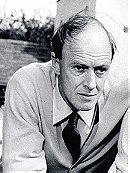
 8.6
8.6
 0
0
